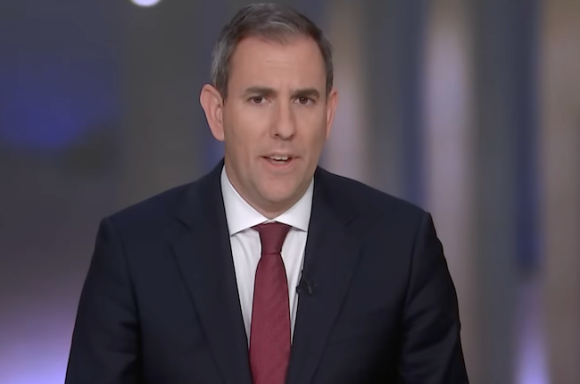Despite record-breaking penalties, corporate misconduct continues unchecked, suggesting fines alone are failing to reform big business. Carl Rhodes reports.
WHEN OPTUS was fined $100 million last month by the Federal Court of Australia for exploiting vulnerable customers, Australian Competition and Consumer Commission (ACCC) deputy chair Catriona Lowe declared:
“We welcome the substantial penalty imposed by the Court and the deterrence message that it will send.”
Just weeks earlier, Australian Securities and Investments Commission (ASIC) chair Joe Longo struck a similar tone when ANZ Bank was hit with $240 million in penalties for lying to government and cheating customers:
“The fine will be a clear message to ANZ and all other banks that the cost of breaking the law is not an acceptable cost of doing business.”
In August, Qantas received a record $90 million fine for unlawfully terminating more than 1,800 ground workers. Delivering the ruling, Federal Court Justice Michael Lee said it would “send a message to Qantas and other well-resourced employers”.
Given the scale and frequency of these record-breaking fines, it is worth asking: what message is actually getting through? It certainly doesn’t seem like a deterrent.
Message not received
If fines were meant to keep corporate Australia on the straight and narrow, they’re failing.
Look at last year’s “messages”:
- BHP paid $23.7 billion for environmental devastation in Brazil;
- SkyCity Adelaide was slugged $67 million for money laundering breaches;
- Macquarie Bank copped $10 million for failing to stop fraud on customer accounts; and
- Mercer Superannuation paid $11.3 million for greenwashing its “sustainable” investments.
The common thread? There are people working in Australia’s largest corporations who are willing to lie, cheat and steal for profit. Heads rolled, to be sure, with various leadership shake-ups resulting from the scandals, but none of these scandals resulted in any criminal charges being held up.
Between 2020 and 2024, 369 corporate fines were issued in Australia, amounting to a total of just under $30 billion. The vast majority were for breaches related to the environment, consumer protection, safety, financial management, employment and competition. The fines are significant, but the scandals continue to mount.
So, what’s the real message? For significant parts of corporate Australia, breaking the law still looks like a cost of doing business. It is a hefty cost, but apparently it is one worth paying for ensuring that no structural changes are made to the system in which the guilty corporations operate.
The trust deficit
If the intended but unheard message to corporations is deterrence, there is an unintended message to the public that is being heard loud and clear. And it is something far more corrosive: that big business cannot be trusted.
Australians’ trust in big business is not only low, it’s getting worse. This is not just because some companies break the rules, it is because the system tolerates it. Even companies that play by the rules risk being tarnished by association. If misconduct is met only with fines and not with meaningful reform or accountability, then public confidence will continue to decline.
Restoring trust will require more than penalties; it will demand a cultural shift in how business sees its role in society. Sadly, that does not seem imminent.
Corporate resistance
When it comes to regulating corporate behaviour, the response from the business community, at least insofar as they are represented by the Business Council of Australia, is that productivity growth demands that we have less regulation.
The Council calls compliance a ‘red tape burden’ and earlier this year, they demanded a 25 per cent reduction in the cost of regulation by 2030.
Reducing unnecessary bureaucracy is sensible. But as recent fines show, regulation is essential to keep corporations aligned with legal and community expectations. If companies cannot do the right thing without strict laws, they only have themselves to blame. Pointing the finger at government is tantamount to avoiding that responsibility.
This stance echoes the Business Council’s response to the Australian Law Reform Commission’s 2020 review of corporate criminal responsibility, where they argued regulation should align with “economic growth objectives”. Translation? If compliance slows profit, downgrade the rules. By implication, some wrongdoing is an acceptable price for progress.
The bottom line
Businesses can do better and many already are. But lasting change requires more than treating penalties, no matter how large, as an accounting expense. It will take leadership, transparency and a genuine commitment to doing the right thing, not just the profitable thing.
Until that message gets through, trust will keep eroding and so will the social license to operate.
Carl Rhodes is Professor of Business and Society at the University of Technology, Sydney. He has written several books on the relationship between liberal democracy and contemporary capitalism. You can follow him on X/Twitter @ProfCarlRhodes.
 This work is licensed under a Creative Commons Attribution-NonCommercial-NoDerivs 3.0 Australia License
This work is licensed under a Creative Commons Attribution-NonCommercial-NoDerivs 3.0 Australia License
Support independent journalism Subscribe to IA.

Related Articles
- Adani, Trump and the undoing of global anti-corruption norms
- Angus Taylor's 'Watergate' links emerge in secret government deal
- Transparency in limbo as MP expense data held from public
- Dodgy governments, corrupt institutions and shadow states lurking beneath our democracy
- EDITORIAL: Dodgy governments, corrupt institutions and shadow states lurking beneath our democracy













